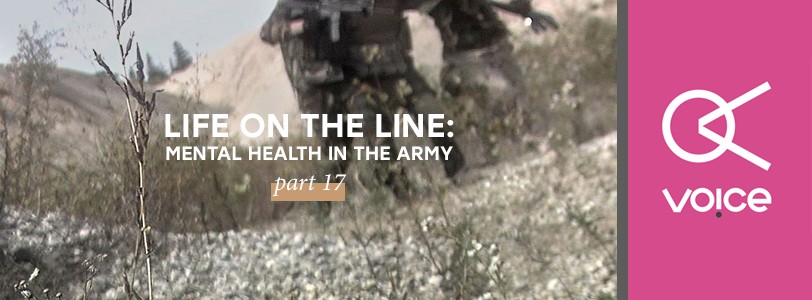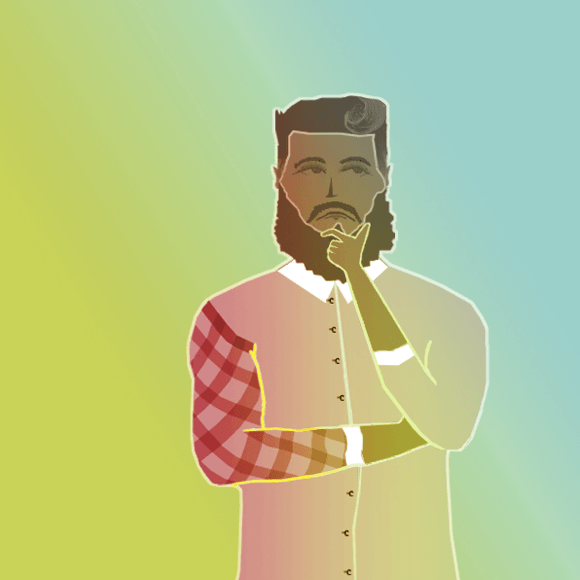So where does this leave me now? I'm out of the military, and thanks to the sterling work offered by the mental health care team at Colchester I am certainly able to find a life for myself beyond the camp gates. I fish occasionally when I can, though nowhere near as much as I'd like to. I've started to follow one of my more low-level dreams of buying an old handyman's van, and am currently in the process of converting it to something I can go away in for a night, here and there. To me it represents the freedom to go and visit some of the places I've always wanted to visit.
I'll always have depressive times for the rest of my days. Most people do, even those that are 'healthy'. The difference now is that I'm much better about spotting the onset of an episode, and that allows me to deal with it in a better way. It's kind of like having a mental toolset to help get me out of the hole rather than keep slipping deeper. Maybe that's the only real difference between the well and the unwell from a mental health perspective – your ability to deal with the problems you face and move on.
The reality is the actual mental health care and treatment offered in the military is far superior to that offered by the NHS. Could a civilian get to see a doctor same day, or referred and initial appointment with a mental health professional within a couple of weeks? I've one of the new ten pound notes says probably not. It's in the day-to-day workplace that we don't do as well. I don't feel that it's necessarily a malicious attempt to undermine and unsettle anyone with a mental health issue – at least in the vast majority of people. As with anything there will always be one or two individuals who find such things difficult to accept. This is no different to our counterparts that never joined the military. People are people, and some will always find having their notions challenged difficult.
Some of our failing seem to stem from unfamiliarity with the systems in place, and their appropriate use. There is a wonderful setup out there available just for the military, it's just bureaucracy and simply not knowing can hamper the correct ways of dealing with these types of issues. This could be addressed with better training or ideally dedicated people who exclusively deal with this kind of thing, and would know what exactly what should be going on. My experiences of talking to members of the military on the whole is that they are in many ways more progressive than civilian society in their attitudes to mental health issues, and a surprising number will reveal quite openly that either they or close friends have had issues they needed to work through.
Final thoughts
Throughout my experiences, I have seen a lot, and had plenty of time to think. There are certain attitudes and practices that are incredibly frustrating, and I think there needs to be a more holistic approach to come to a satisfying resolution :-
When I grew up we had a simple phrase, 'if you break it, you buy it'. Owing to an incident in the military a few years previously, my back was injured, meaning I need to take two types of pain medication on a regular basis for the rest of my life. Due to the nature of these medications, I also need to take a tablet to protect my stomach, or I end up with burning pain from taking the pain relief. I also need daily doses of anti-depressants.
Now the back injury as stated was incurred while doing my job in the army, and yet I am expected to pay for the prescription charges on these medications. I'm not alone. There are amputees, and other people injured serving their country who need regular medication for their injuries, who are also expected to pay for their own treatment. Is it really such a difficult thing to treat our veterans with the same moral standards of honesty and fairness as we expect them to behave by while they serve? The same should apply with all our servicemen, both past and present. If they get broken doing that duty, they should be treated honestly and given the treatment they should expect for free. If the Government can create pots of money to offer cancer drugs, insulin for diabetics, methadone for heroin addicts why can't there be a pot of money to offer medications for veterans?
I've grown to dislike amateur psychologists. People who will spout complete bunkum like 'nobody needs antidepressants, they just need to do more exercise and get out of the house' – Yeah err, no it doesn't work that way, getting out of bed is an achievement equal to any herculean task in the Greek legends of old if you're being taken badly by the state your mind is in. Or "It's all a load of bollocks, mental health problems are just a way of scamming time off work" – you're so right there, those times I felt like killing myself, it was just the logical way of getting a day off work!?
Greater work needs to be done in terms of education, at all levels of society, including education in our schools to spread a greater level of understanding.
My path out of the army should have been better managed, but it's too late now, I'm out. However, in reality, those medically discharged should be offered the same timeframes as those who choose to leave voluntarily. The key difference is those who chose to leave have made a conscious decision to leave - there is no shock or grieving process to negotiate after being told you have to leave the army. I suffered quite badly and as it turned out my status was not managed correctly.
The recovery events should be a mandatory requirement before someone is allowed to attend a medical board. After all what's the point in getting a lesson on what goes on in the med board weeks or even months after they've had the med board? For this to be a reality, the army needs dedicated people whose sole task is to ensure this is ran correctly. There is a small number of people who do this, but referral to them is based solely on medical priority. Unfortunately, there aren't enough of these people, and it's not a problem that's going away.









0 Comments